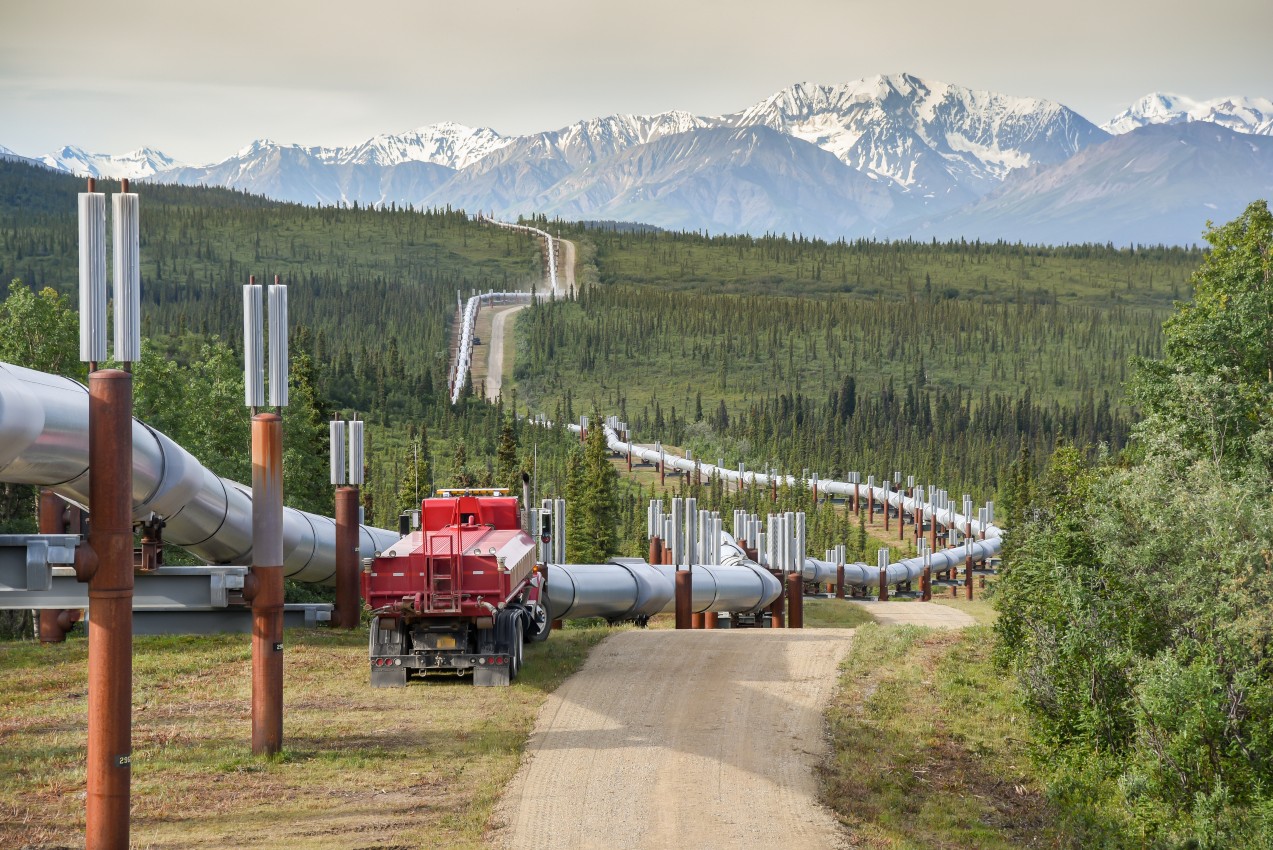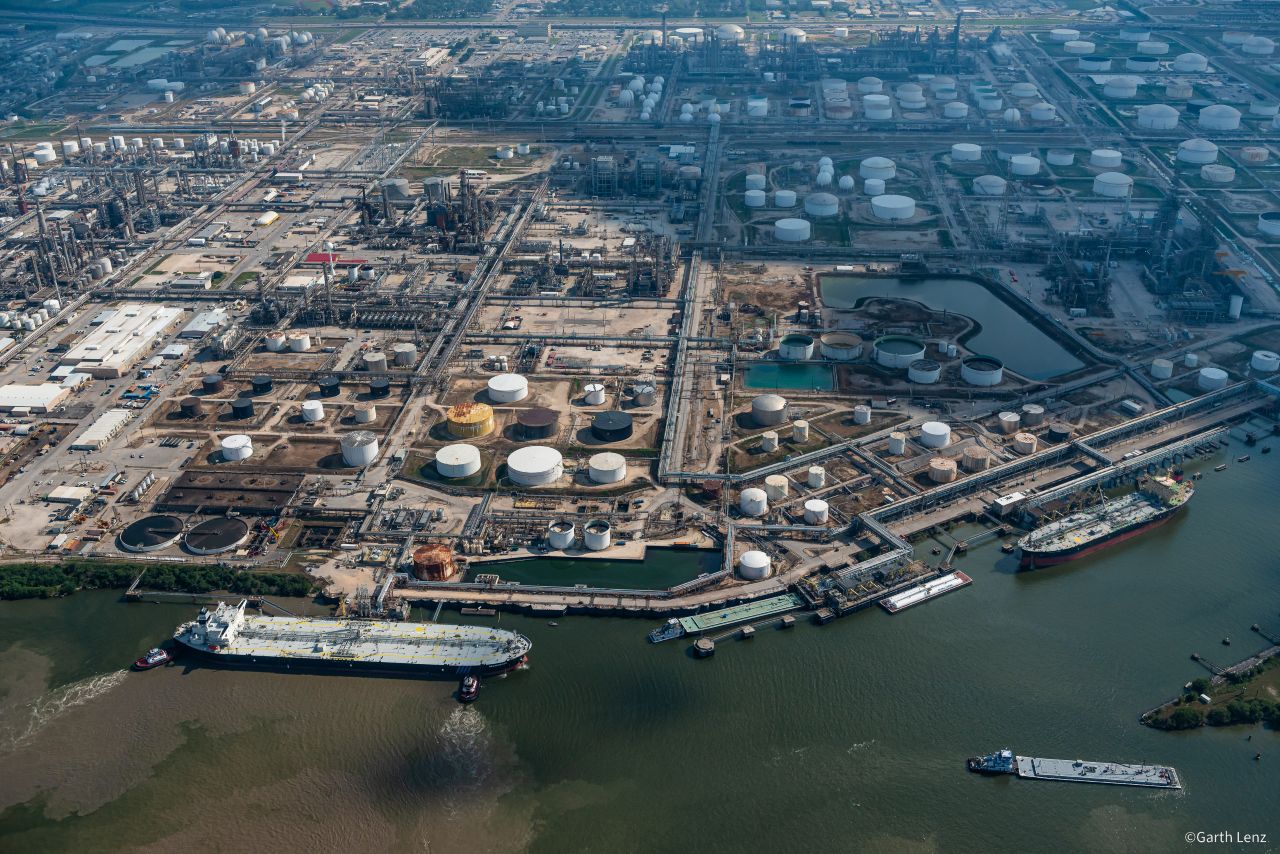The outlook for the oil and gas industry under President Harris vs. President Trump

The 2024 U.S. presidential election offers a stark choice when it comes to how each administration will approach regulating the oil and gas industry.
Under a Democratic administration led by Vice President Kamala Harris, federal climate policy would likely continue down the Biden Administration’s path – which has meant both billions of dollars invested in clean energy while also allowing for record-breaking oil and gas production.
By contrast, former President Donald Trump and his allies have vowed to repeal Biden’s clean energy policies, abandon the country’s climate goals, slash regulations, and speed up oil and gas permitting and leasing. In short, “drill, baby, drill!” as Trump frequently proclaims on the campaign trail.
Project 2025, a Heritage Foundation document designed as a playbook for a second Trump administration, denounces what it calls the Biden-Administration's “war on oil and gas.” (As a reality check, if it has been a “war,” then it’s been a war that hasn’t been all that harmful to oil companies, which earned record-breaking profits during Biden’s term.) Project 2025 urges the rollback of Biden- and Obama-era policies intended to reduce pollution. It also calls for a massive expansion of oil and gas leasing on federal lands and the repeal of green energy incentives in Biden’s Inflation Reduction Act.
“I think a second Trump Administration would try to undo what the Biden Administration has done,” said John Lowe, an energy law professor emeritus at Southern Methodist University. “Just how they will do that and how far they will go will depend on the structure of Congress after the election. Likewise for Harris. She is trying to appear to move more to the middle. But I expect that a Harris Administration would continue to try to move the U.S. away from fossil-fuel reliance.”
With the presidential campaign now in the final 60 days ahead of the Nov. 5 election, Harris has signaled more openness to the oil and gas industry than she did during her failed 2020 presidential campaign. Back then, she said she would support a ban on fracking, a stance she has recently reversed.
“I will not ban fracking. I have not banned fracking as Vice President of the United States,” Harris said during her debate with Trump in Philadelphia on Tuesday night. “And in fact, I was the tie-breaking vote in the Inflation Reduction Act, which opened new leases for fracking.”
Harris also touted record energy production under the Biden administration.
“My position is that we have got to invest in diverse sources of energy, so we release our reliance on foreign oil,” Harris said during the debate. “We have had the largest increase in domestic oil production in history because of an approach that we cannot over-rely on foreign oil.”
That statement is somewhat misleading. Though domestic production in the U.S. has surged, much of that oil has been exported, while imports of foreign oil have also been going up the past three years, according to the U.S. Energy Information Administration. One reason imports have continued is that many U.S. refineries are only geared to handle a grade of crude oil produced mostly by foreign countries.

But Trump and his supporters constantly make misleading claims about oil and gas, as well as their opponents’ records.
During the debate on Tuesday, Trump said: “Fracking? She’s been against it for 12 years. ... If she won the election, fracking in Pennsylvania will end on day one.”
In a Fox News town hall last week in Harrisburg, Pennsylvania, Trump said that fracking is the state’s “biggest business” and that Pennsylvania gets a “majority of [its] income” from the industry.
None of that is true. Oil and gas extraction is not even on the top 10 list of Pennsylvania industries by revenue, and most of its state government revenue comes from income and sales taxes and federal funds.
During the debate, Trump attacked Biden for removing U.S. sanctions on Russia’s Nord Stream 2 gas pipeline while also cancelling a permit for the Keystone XL pipeline, which would have shipped crude from Canada’s oil sands to the U.S. (Trump exaggerated in claiming that Biden “approved” Nord Stream 2. The U.S. does not have the authority to approve pipelines in other countries.)
As for whether Harris would ban fracking as president, her recent statements to the contrary and the record-breaking oil and gas production during the Biden-Harris Administration indicate she would not.
Last year, the U.S. produced more oil in a year than any country in history, according to the U.S. Energy Information Administration. There is such a glut of natural gas in the Permian Basin of West Texas that the price of gas often falls below zero. There are not enough pipes to carry all the fuel.
Even on federal land, where the federal government has more direct control over the industry, gas production has increased under Biden and Harris, and oil production was at its highest point since at least 2003.
Some of the administration’s moves on oil and gas have been more mixed. President Biden placed a temporary pause on federal permits for new liquefied natural gas export terminals, but that was blocked by the courts -- so it had no lasting impact.
In Alaska, Biden angered environmentalists by allowing ConocoPhillips to drill on federal land that’s part of the 37,000-square-mile National Petroleum Reserve. But Biden also cancelled leases issued under the Trump Administration in the Arctic National Wildlife Refuge.
During her two-year Senate term, Harris co-sponsored legislation introducing the Green New Deal. In 2022, as vice president, Harris cast the tie-breaking vote allowing the passage of the Inflation Reduction Act (IRA), Biden’s signature climate initiative, which opened hundreds of billions in federal funding to reduce emissions and implement cleaner energy sources.
A Harris Administration would likely regulate the oil and gas industry more stringently than Trump, environmental advocates argue.
“We fully expect the Harris administration to build on these efforts and to accelerate the implementation of existing clean energy incentives and standards,” said Josh Axelrod, senior policy chief for the Natural Resources Defense Council Action Fund. “This includes reducing existing natural gas plant emissions; permitting and transmission reforms to support the energy infrastructure revolution; expanding the IRA with new investments and standards; and further addressing the impacts of the oil and gas industry.”
Examples of increased regulation of the oil and gas industry from the Biden-Harris administration during the last four years include new rules on methane emissions from oil and gas; a scaled back oil and gas leasing plan in the Gulf of Mexico; increasing royalty rates charged to companies that produce on federal land, and the passage of Obama-era rules (rolled back by Trump) meant to prevent disasters at petrochemical plants. The Biden EPA also recently indicated it would perform a study of the proper disposal of oil and gas wastewater – a move that a Harris Administration would likely follow up on.
In July, more than 350 climate and environmental justice leaders signed a letter endorsing Harris, calling her a “champion” of climate action and environmental justice over her career in the Senate, and as California Attorney General and San Francisco District Attorney.
“We’ve seen this administration take on the oil and gas industry,” said Mahyar Sorour, director of Beyond Fossil Fuels Policy for the Sierra Club. “I think we’ll continue to see a Harris administration take on the oil and gas industry and certainly not be in the pocket of Big Oil like a Trump-Vance presidency would be.”
As part of his 2024 presidential campaign, Trump in May asked oil companies for $1 billion in campaign contributions. In return, he promised them he would reduce environmental rules, accelerate permitting and leasing, and provide tax benefits for fossil fuel companies.
As president, Trump pulled the U.S. out of the international Paris climate agreement and rolled back dozens of environmental rules meant to reduce air and water pollution and improve chemical safety.
Trump has also said he would formally reverse Biden’s LNG pause (even though it already has been blocked by the courts) and has attacked the Biden’s administration’s policies to promote electric vehicles.
In an Aug. 12 conversation with Elon Musk on the social media platform X, Trump claimed that sea level rise due to climate change has an upside because it creates “more oceanfront property.” He also asserted that the world has “perhaps hundreds of years left” to use fossil fuels.
Harris’s statements and record have been sharply different. For example, as California’s attorney general, Harris went after oil giants such as Chevron, ConocoPhillips, and BP for violating state laws for underground storage tanks at hundreds of gas stations all over the state and her office secured a combined $50 million in settlements from the companies.
Harris’s office also filed criminal charges in 2016 against a pipeline company for spilling nearly 143,000 gallons of oil into the Pacific Ocean near Santa Barbara. A jury convicted the company, Plains All American Pipeline, in 2018, and a judge the following year sentenced it to pay $3.3 million.
The presidential election on Nov. 5 will be important for deciding the climate for the oil and gas industry in the U.S. But regardless of who is in the White House, much of the regulation of the industry takes place on the state level, including approving new oil and gas wells and permitting of refinery expansions or new pipelines that do not cross state lines.
“If you are interested in taking steps to tackle the climate crisis, being involved organizing at every single level of government is critical,” said Sorour, with the Sierra Club. This is true “whether it's the state public utility commissions, the state pollution control agency, or the state department of natural resources.”















